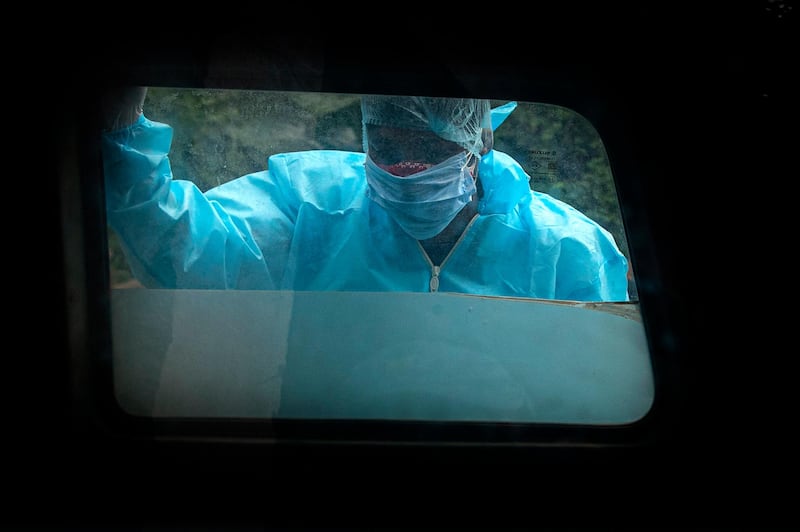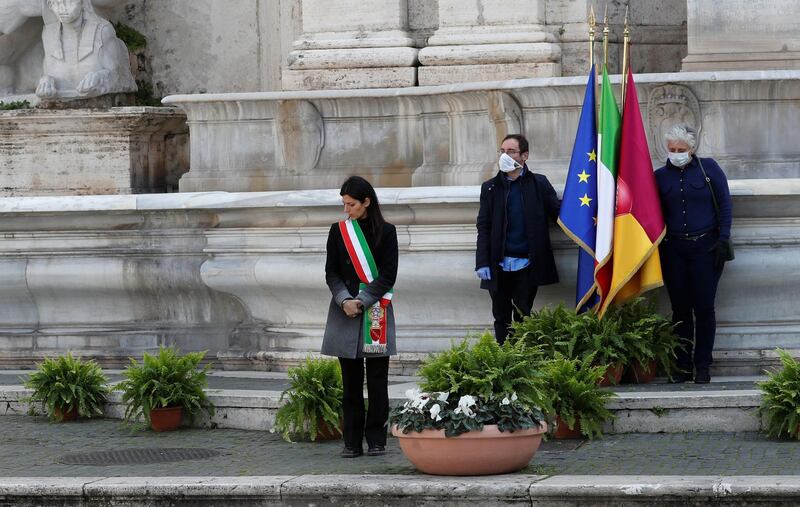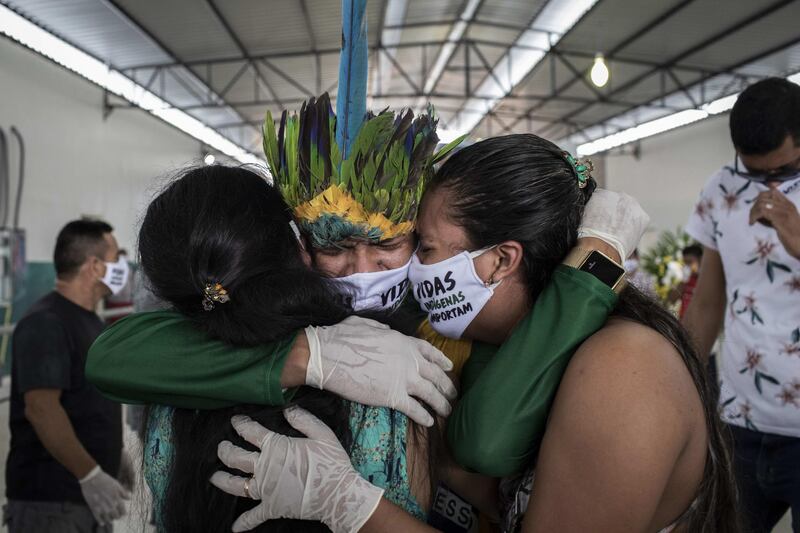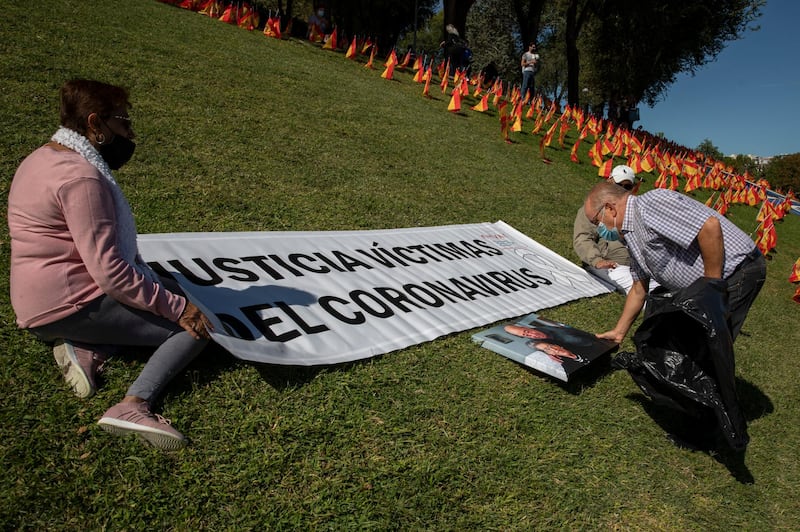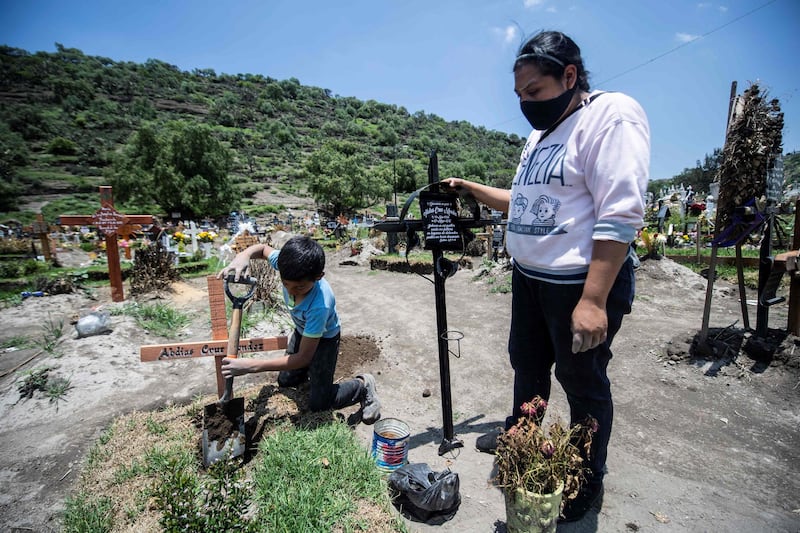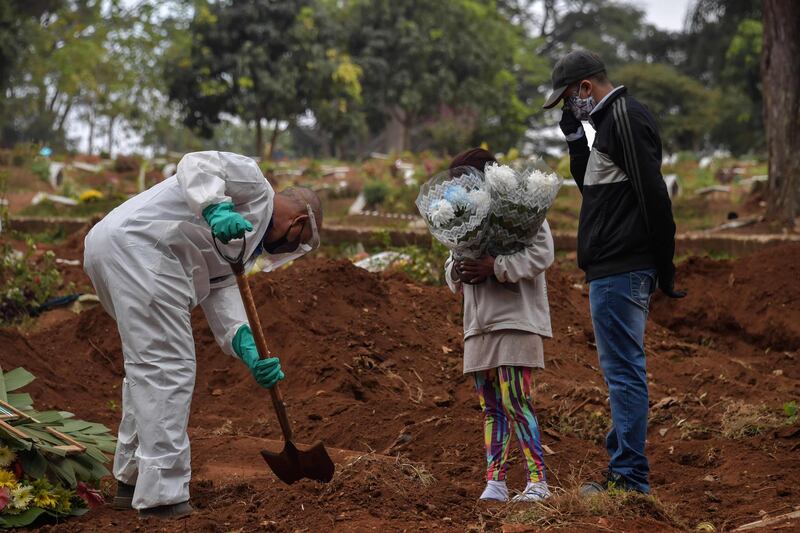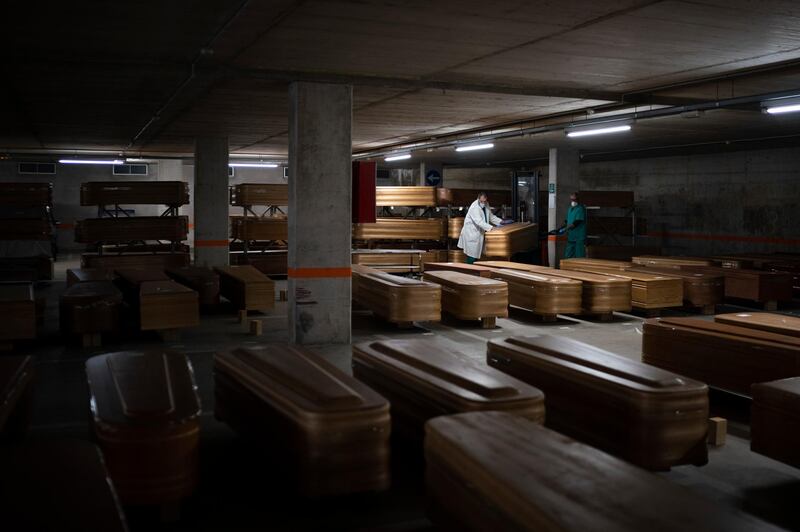The global death toll from Covid-19 has reached one million, with little sign that the world is close to controlling the spread of the deadly pathogen.
Ten months on from the emergence of the coronavirus in the Chinese city of Wuhan, the number of confirmed cases has passed 33 million and continues to rise fast.
Dozens of research groups are racing to create an effective vaccine, seen as a key step towards cutting death rates and allowing economies to recover from the devastating effects of lockdowns.
But only last week, the World Health Organisation warned that as many as two million people could die before an effective vaccine was developed.
The official case and death numbers are likely to be just a fraction of the real figure.
They also fail to take into account what are forecast to be increased deaths from other medical conditions, such as heart disease and cancer, as hospitals concentrate on the pandemic.
After the virus emerged in China in December, it spread worldwide rapidly thanks to international air travel and easy transmission, with cases reported on every major continent within weeks.
Europe was initially the hardest hit before lockdown measures significantly reduced spread, albeit with a huge economic impact that has tipped many countries into a deep recession.
The Americas then became the pandemic’s centre and they remain the worst-affected continents, with about half of all cases and 550,000 deaths.
Death tolls have been particularly high in the US, at 209,566, and Brazil, at 141,877, which sit with India, where more than 96,000 have died from the virus, according to Worldometer.
After restrictions were loosened across Europe, case numbers are rising quickly again and are likely to be followed in the coming weeks by increases in death rates.
Meanwhile, Israel has become the first country in the world to introduce a second full national lockdown, and case numbers are rising in other parts of the Middle East and in Asia.
While the death toll from Covid-19 has been severe, influenza outbreaks, such as those in 1957-58 and 1968-69, are also thought to have killed at least a million people each, while Spanish flu costs tens of millions of lives between 1918 and 1920.
But this pandemic has still caused surprise, given that it was caused by a coronavirus rather than a form of influenza.
"I thought this outbreak was going to be similar to Sars – that the thing would get going and would soon be snuffed out," said Prof John Oxford of the University of London, who co-wrote the book Human Virology.
"That’s not been the case."
1 million people die of Covid-19
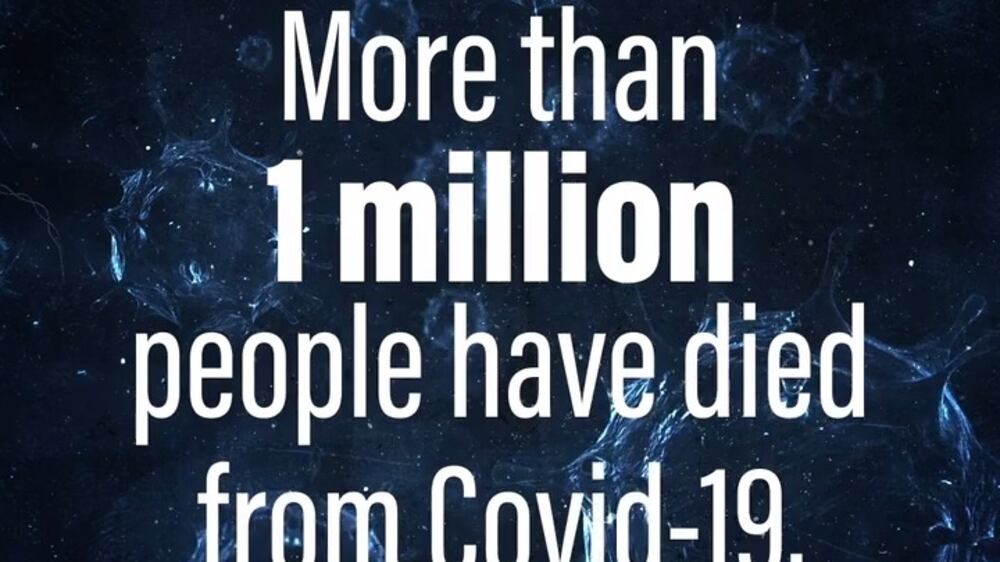
Despite hospitals facing often unprecedented pressure, improvements in the treatment of Covid-19 have limited the number of deaths.
Global infection rates have continued to rise in recent months – partly because testing capacity, while often still inadequate, has grown – but the number of fatalities has remained about steady.
The steroids dexamethasone and hydrocortisone are among the drugs under trial as treatments after it was found that they could cut death rates among the sickest patients.
And the antiviral drug remdesivir has been found to cut recovery times.
Efforts have also focused on developing a vaccine, and late-stage clinical trials of the most advanced programmes, often based on tweaked versions of existing vaccines, began months ago.
WHO data shows nine vaccines from China, continental Europe, Russia, the UK and the US are now in Phase 3 clinical trials.
Involving thousands of participants, these aim to identify rare side-effects and to find out how effective the vaccines are at preventing coronavirus infections.
Licensing agreements for the supply of billions of doses of vaccines have already been signed and manufacturing capacity is being increased for what is set to be unprecedented demand.
Initial immunisation programmes, which have begun in small numbers, could be increased this year, but are likely to focus on particular groups, such as healthcare workers and those most vulnerable to Covid-19.
A large-scale vaccination programme may not begin until well into 2021 or beyond, and reports have warned it could be years before the world’s population is protected.
While it is likely that several vaccines will be rolled out widely, there are concerns about “vaccinationalism”, with countries not making supplies as widely available to other nations as they could.
A vaccine may, in any case, not be a silver bullet in terms of dealing with the pandemic.
“I don’t think actually a vaccine alone will control these outbreaks, let alone eliminate [the virus],” said Prof Oxford.
“We can use a vaccine along with some of the things we’re doing now, like infection control, social distancing, and then we’re in a much better spot [and can] take control of the problem.”
A possible scenario, he said, was that the virus remained in the human population and became a seasonal problem.
“Viruses tend to change as time goes on and become more spreadable and less deadly,” Prof Oxford said. “To some extent, I’m relying on that.”
Also looking ahead, the British Prime Minister, Boris Johnson, recently told the UN there should be a global laboratory network of “zoonotic hubs” to identify pathogens before they infect people.
Like Sars and another coronavirus, Mers, this coronavirus is believed to have spread from animals into people.
“With nearly a million people dead, with colossal economic suffering and more infections to come, there is a moral imperative for humanity to be honest and to reach a joint understanding of how the pandemic began, how it was able to spread,” Mr Johnson said.

